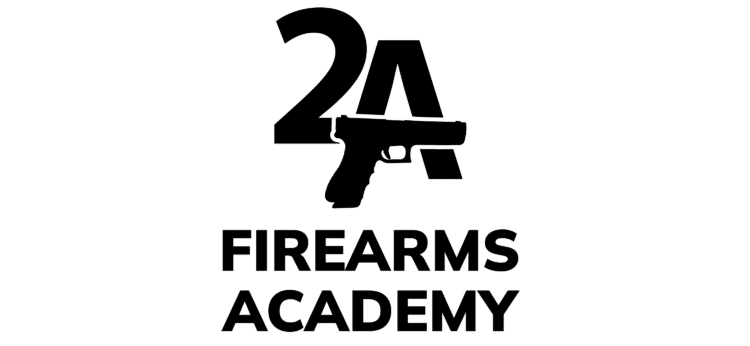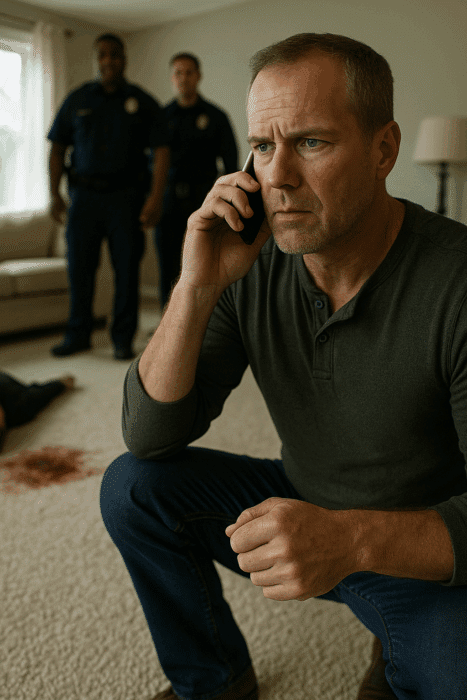What to Say—and Not Say—to Police After a Self-Defense Incident
In the moments after defending yourself in a self-defense shooting, your physical survival may no longer be in jeopardy—but your legal survival is only just beginning. The aftermath of such an event is a high-stakes legal minefield, and your words can either secure your freedom or contribute to your conviction. What you say—or don’t say—to the police matters deeply. Understanding how to navigate these interactions intelligently can make all the difference.
As an experienced self-defense attorney, let me be absolutely clear: the most dangerous part of a defensive gun use isn’t always the shooting itself—it’s what you say afterward.
Two Schools of Thought: Say Nothing vs. Say Little
In the legal world, two main schools of thought exist for what to say to police after a self-defense shooting:
- Say Nothing:
This is the default advice from most criminal defense attorneys. You remain completely silent—no statements, no explanations, no small talk—until your lawyer is present. And there’s merit to this approach. Anything you say can and will be used against you, even if you did everything right. Remaining silent protects you from your own adrenaline-fueled mistakes. - Say Little:
This approach is not for everyone. It’s only for those who can remain calm and deliberate under extreme stress—what we call the “professional self-defender.” Here, you say just enough to preserve key facts and evidence that will support your claim of self-defense, but nothing more. It’s a thinking man’s game—risky, but potentially rewarding if executed correctly.
Why Total Silence Can Backfire
Remaining silent is a constitutionally protected right. But here’s the wrinkle most people don’t realize: the moment you shoot someone and say nothing, your silence can look suspicious. Prosecutors may argue that you fabricated your self-defense claim after speaking to an attorney. In their eyes, you’re just another guilty defendant trying to lawyer your way out of a murder rap.
Moreover, if you don’t call 911, it may appear that you fled the scene or tried to cover up the shooting. If you do call 911 but then refuse to answer even basic questions like your name or location, it creates a problematic narrative: one where you look less like the victim and more like the aggressor with something to hide.
And here’s the legal kicker: unless you’ve clearly asserted your right to remain silent or been Mirandized, your silence can be used against you in court, thanks to rulings from the U.S. Supreme Court.
A Smarter Approach: The Say-Little Strategy
If you’re calm, clear-headed, and disciplined, a limited communication strategy may better serve your legal defense. The key is saying just enough to frame your actions as self-defense, preserve crucial evidence, and establish your role as the victim—not the perpetrator.
Here’s what that looks like, step-by-step:
Step 1: The 911 Call
Only say the following:
- Your name
- Your location
- Request both police and medical assistance
- Brief summary: “I was attacked. I defended myself. Shots were fired.”
Nothing more. Do not provide a play-by-play. Do not editorialize. The call will be recorded and played back in court.
Step 2: Responding Officers
When uniformed officers arrive, calmly:
- Reiterate the same info you gave 911.
- Identify exculpatory evidence (e.g., “The suspect’s knife is under the car”).
- Identify helpful witnesses (“That woman saw everything—she was right there”).
- Ask to be medically evaluated (you may be injured and not know it).
Then assert your rights:
“I assert my right to remain silent. I assert my right to legal counsel.”
Say it clearly and unequivocally. If you begin to talk again, your rights can be considered waived.
Step 3: Detectives and Investigators
Say nothing to detectives. They are professional interrogators. Your only words should be:
“I’m invoking my right to remain silent and to speak with my attorney.”
That’s it. Let your lawyer do the talking.
Crucial Mistakes to Avoid
- Blathering: Nervous talking is natural, but it can kill your defense. A single inconsistent statement or slip of the tongue can undermine your credibility in front of a jury.
- Explaining motives: Your motivations may seem righteous, but a prosecutor can twist your words. Say less.
- Minimizing the threat: Statements like “I didn’t think he would really stab me” or “I wasn’t sure if it was a real gun” could suggest unreasonable fear—destroying your justification.
- Talking to EMS: Medical responders are often questioned by police. Anything you say to them can be used in court.
Final Advice: Self-Defense Requires Legal Discipline
If you carry a gun to make yourself hard to kill, then you need to know the law to make yourself hard to convict. The justice system isn’t designed to favor the armed citizen. It’s designed to dissect and scrutinize every second of your use-of-force decision—and everything you say afterward.
The wise self-defender trains not only on the range, but also in the courtroom—in mindset, in restraint, and in knowing how to survive the legal aftermath.
In short: Know what to say. Know when to shut up. And above all—assert your rights.

